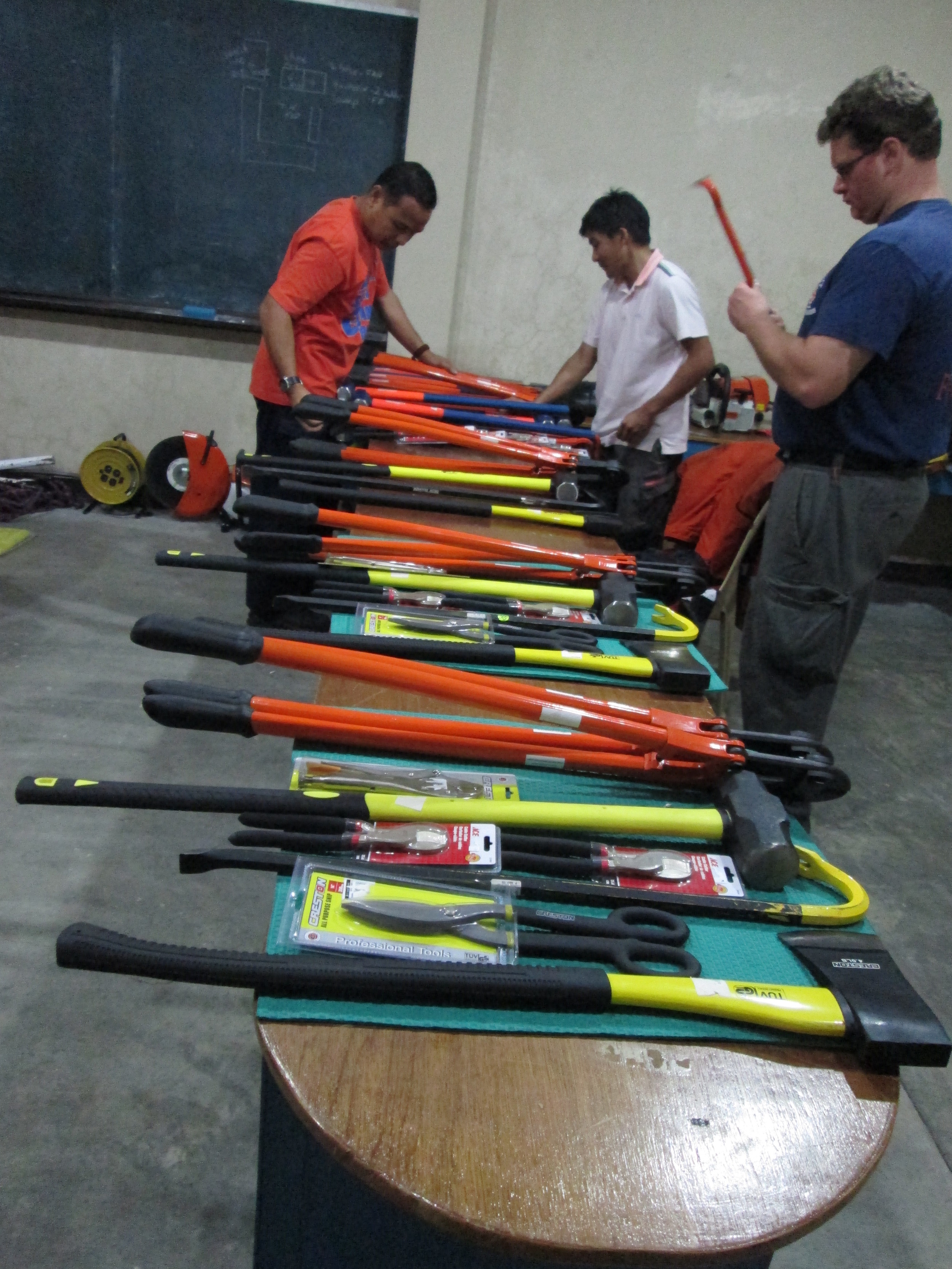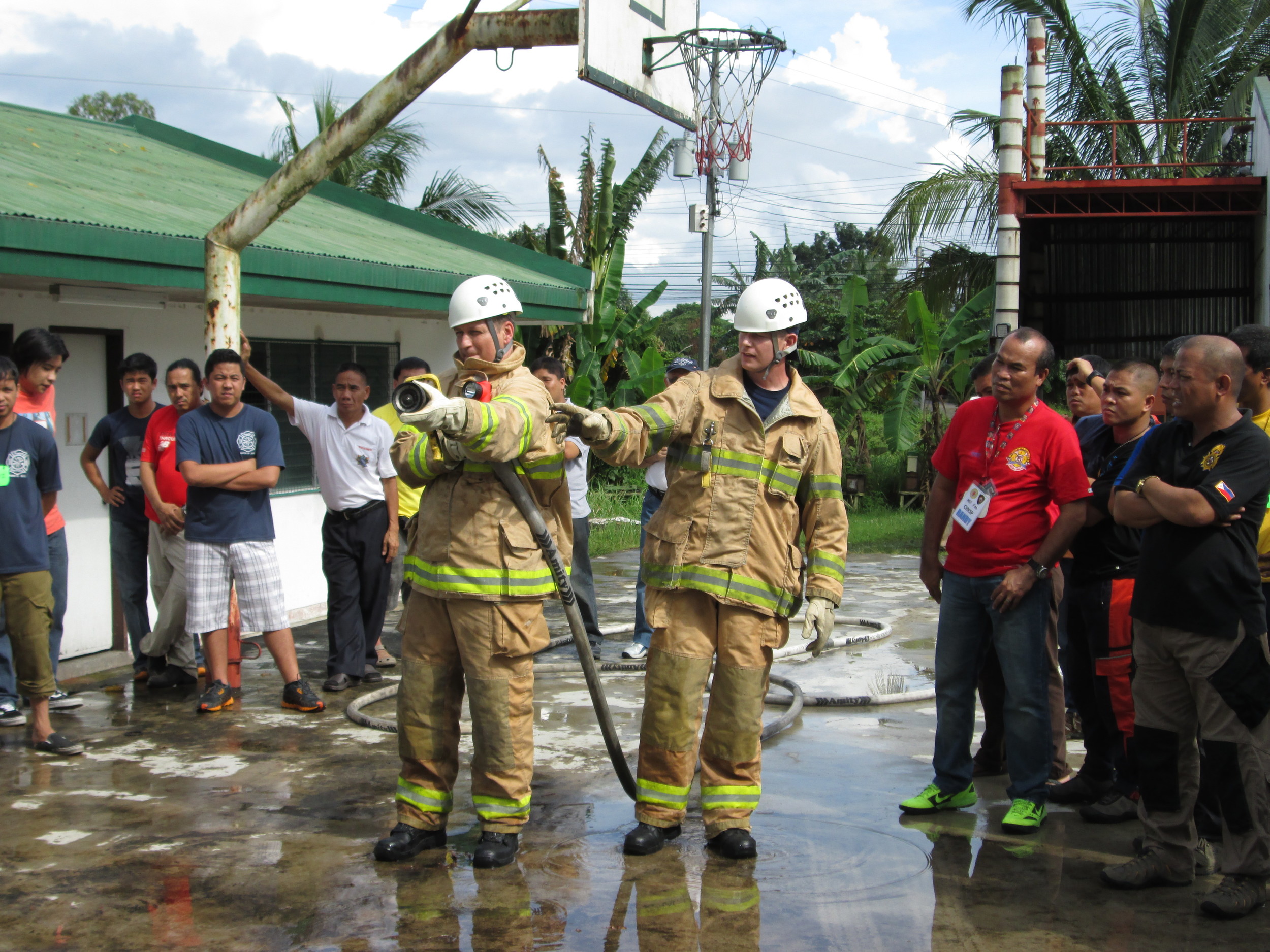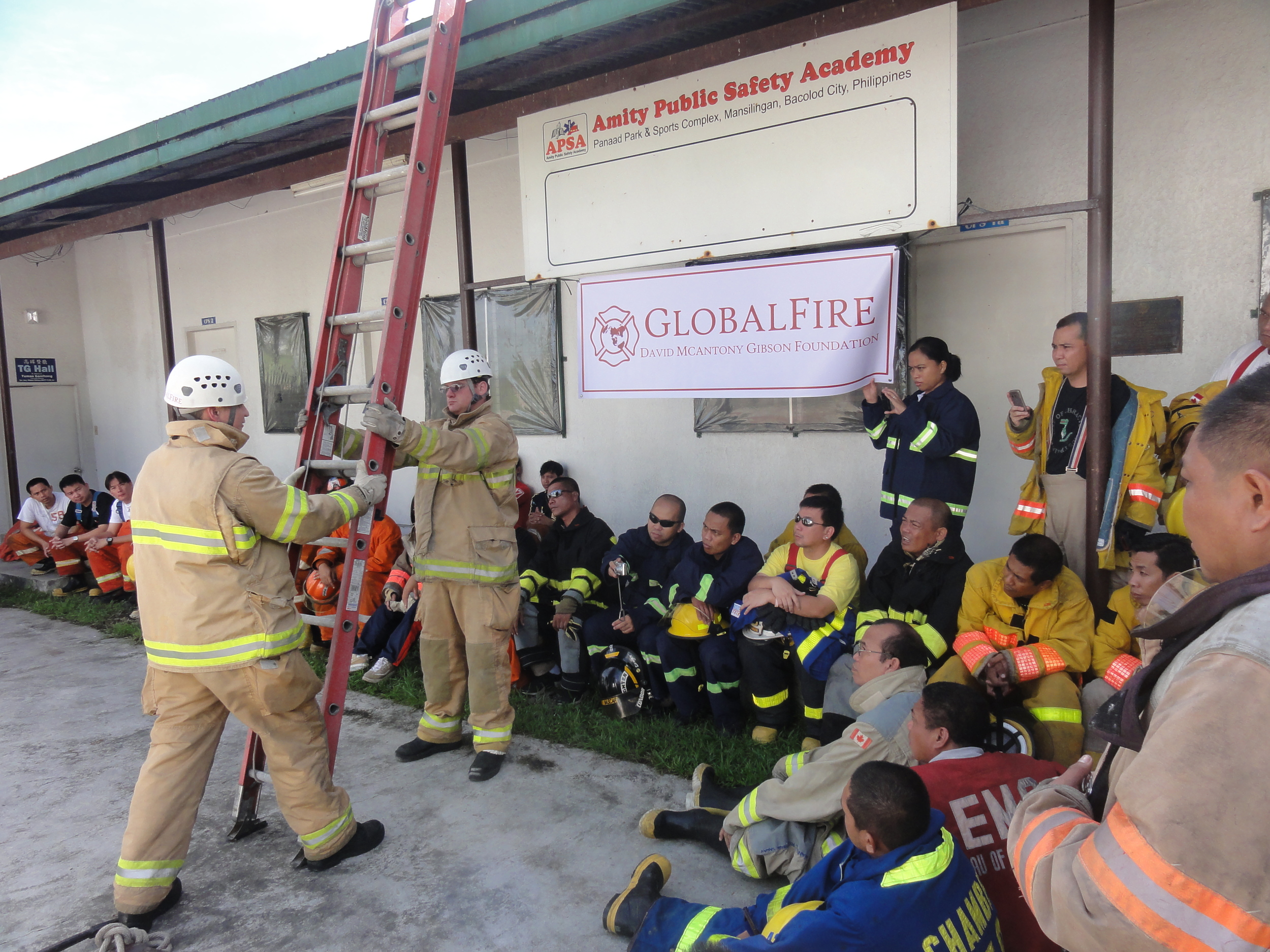Philippines, 2012
On November 6th 2012, GlobalFire members from across Canada deployed to the Philippine Islands for a 2 week “capacity building operation”. This operation was designed to focus on supply and training to help support poor fire departments throughout the Philippine province of Negros Occidental.
The Philippines is an archipelago comprising 7,107 islands, with a total population of 92 million people. This makes the Philippines the 12th most populated country in the world. Population density and poverty present complex challenges for Filipino firefighters to overcome. In addition to these concerns, the Philippines is located on what is known as the Pacific Ring of Fire, making it prone to earthquakes, typhoons and flooding. Couple all these concerns with a lack of funding and training for emergency first responders, and you have a very challenging environment for firefighters to operate in.
GlobalFire aims to empower firefighters in the developing world by freely providing them with the equipment and training they need to perform some of the world’s most difficult and dangerous jobs.
To help achieve this aim, GlobalFire’s 2012 Philippines team distributed fire fighting supplies to fire departments across the province of Negros Occidental without it costing those departments anything. Some of the supplies had been shipped from Canada ahead of the team’s arrival. This equipment was donated to GlobalFire by North American fire departments that had decommissioned the items in favor of newer stock. Some of the supplies were purchased locally. This equipment was paid for with funds gathered by GlobalFire members who raised private donations to support the operation. All told, thousands of dollars worth of supplies were distributed at no charge to the local departments.
Some of the supplies GlobalFire donated during this capacity building operation include: protective fire fighting clothing and helmets; fire fighting breathing packs (SCBA); fire hose; tools (to help access fires and effect rescues); Hazardous materials reference guidebooks; medical supplies (to stock the fire departments ambulances); training supplies (to help the fire departments to continue to train safely).
In addition to equipping fire departments across Negros Occidental province, GlobalFire also conducted a “back to basics” fire fighting and fireground survival course for 45 firefighters sent from various fire departments around the province. Firefighters travelled to Bacolod City to attend the course which was held at The Amity Public Safety Academy (APSA), the region’s only fire training facility (built with private donations). This marked the first operation in which GlobalFire was able to take advantage of local training infrastructure, as most countries GlobalFire operates in do not have any such facilities due to the financial realities faced by poorer nations.
Topics taught during the course included: basic fire science, firefighting techniques, smoke fan operations; firehose operations, search and rescue techniques, firefighter emergency procedures, hazardous materials emergency operations.
As is often the case with a GlobalFire course, the week of training ends with the students having to deal with large scale scenarios in real time. For this course, the GlobalFire instructors were motivated to create disaster based scenarios after having experienced an actual 5.8 magnitude earthquake while they were teaching a few days earlier. As such, the scenarios replicated the aftermath of an earthquake and included topics like: auto accidents; forcible entry; building fires; search and rescue; hazardous materials incidents etc. The students rose to the challenge these scenarios posed, and performed admirably.
After the scenarios, a graduation ceremony was held at the Provincial Governor’s palace. The students received certificates and the GlobalFire instructors presented the Provincial Government with tools and hazardous materials reference guidebooks to distribute province wide.
This GlobalFire capacity building operation was a huge success. Our volunteers were able to equip and train several fire departments (both governmental and volunteer) from across Negros Occidental Province. Firefighters who attended the week of training were able to disseminate the course material they had received amongst their department’s other members. This will help to reduce the incidents of workplace illness and injury and improve their chances of achieving fire control and effecting rescues.




